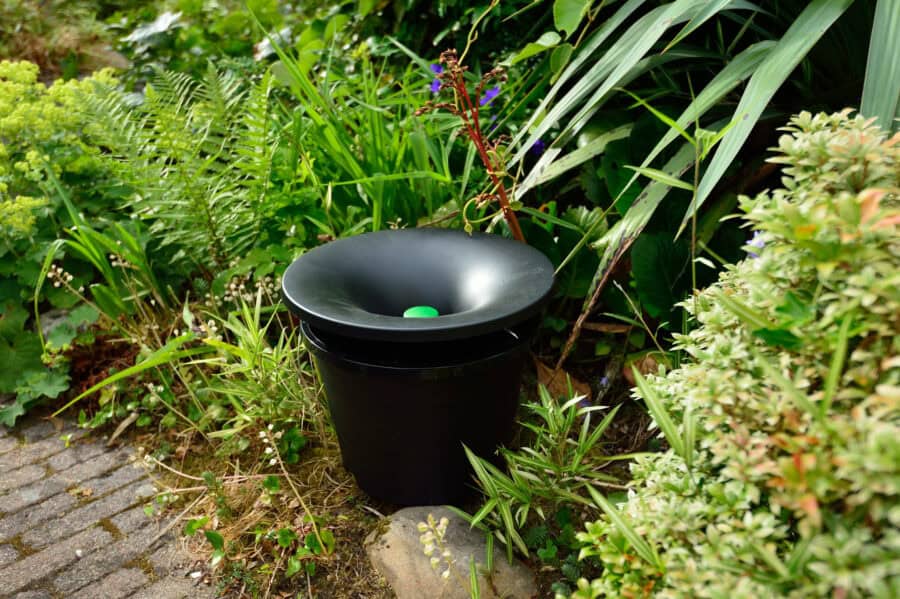READY TO GET STARTED?
REQUEST A FREE ESTIMATE
Fill out the form below or call (336) 226-1448 for a free, no-obligation estimate.

Spring in North Carolina brings vibrant flowers and pleasant warmth, but it also invites one unwelcome guest—mosquitoes. These pesky insects not only disrupt outdoor activities but can also carry dangerous diseases like West Nile Virus and Zika Virus. Fortunately, there are effective, eco-conscious ways to protect your home from mosquitoes without compromising your family’s well-being or the environment.
In this guide, we’ll explore sustainable solutions for keeping mosquitoes away, from natural repellents to yard care tips and pest-repelling plants. Read on to learn how to enjoy a mosquito-free spring while being kind to the planet.
Traditional mosquito control methods often rely on harsh chemicals that can harm your health, disrupt ecosystems, and contaminate soil and water. By adopting eco-friendly alternatives, you’re not only protecting your family’s well-being but also protecting local wildlife and the environment. And, the best part? These methods can be just as effective as chemical treatments!
Here are three eco-friendly strategies to keep mosquitoes at bay naturally.
Chemical sprays may temporarily rid your home of mosquitoes, but they often leave harmful residues that can affect humans, pets, and wildlife. Thankfully, nature provides plenty of natural repellents that are just as effective and healthy for the environment.
Essential oils like citronella, eucalyptus, lavender, and peppermint are excellent mosquito deterrents. These oils not only repel mosquitoes but also provide a pleasant, non-toxic fragrance.
How to use them: Mix 10–20 drops of your favorite essential oil with water and a small amount of witch hazel in a spray bottle. Apply this DIY spray to your skin, clothing, and outdoor furniture. Reapply every few hours for optimal protection.
Pro Tip: Add a few drops of citronella or lemongrass oil to candles or tiki torches around your outdoor seating area to enhance protection.
Coffee grounds are an unexpected yet effective mosquito repellent. Sprinkle used coffee grounds over standing water in your yard. Mosquitoes dislike the smell, and this simple solution can prevent them from laying eggs in stagnant water.
These eco-friendly methods let you stay mosquito-free without harming the environment.
Mosquitoes thrive in standing water. Even a small amount of water, like the size of a bottle cap, can create an ideal breeding ground for larvae. Regular yard maintenance is essential to disrupt their life cycle.
Make sure to regularly check areas where water can accumulate, including:
Mosquitoes love hiding in tall grass and dense shrubs. Keeping your lawn well-maintained by mowing and trimming reduces mosquito habitats.
Poor soil drainage can lead to puddles, creating ideal breeding spots for mosquitoes. Aerating your soil helps improve drainage and eliminates potential breeding grounds after rain.
By maintaining your yard, you reduce mosquito populations and create a healthier environment for both your plants and family.
Transform your yard into a mosquito-free sanctuary with the addition of plants that naturally repel these pests. Many plants produce oils or fragrances that mosquitoes find offensive, offering a green way to protect your outdoor spaces.
Here are some excellent options for North Carolina climates:
Plant these mosquito-repellent plants around outdoor seating areas or near doorways to form natural barriers. You can also use potted versions to create mobile mosquito-repelling zones throughout your yard.
With the right combination of plants, your yard can look beautiful while staying pest-free.
If you’re looking for additional support in keeping your home mosquito-free, In2Care® offers an eco-friendly mosquito control system that targets mosquitoes at every stage of their life cycle. This innovative system uses green mosquito control to reduce mosquito populations without harmful chemicals, offering an environmentally healthy solution that’s ideal for residential areas.
In2Care® provides an alternative to traditional chemical mosquito control, helping to protect your family and local ecosystems while effectively managing mosquito populations. Learn more about how this green solution can help keep your yard mosquito-free!
Every action you take to make your home less appealing to mosquitoes contributes to a healthier, more enjoyable spring season. By using natural repellents, maintaining your yard, and incorporating mosquito-repellent plants, you can drastically reduce mosquito presence without relying on harsh chemicals.
Ready to protect your home the green way? Start today with these simple, effective methods. For more eco-friendly mosquito control tips and solutions tailored to North Carolina homeowners, stay connected with our blog.
If you’re looking for expert advice from pest control professionals on creating a mosquito-free yard, we’re here to help! Contact us to learn more about our sustainable mosquito control services and how we can assist you in making your home healthier and greener.